QuestionMy son has 2 cats. He was just petting one of them and noticed that her pupils were not equal. She is a spayed Russian Blue, possibly a mix, approximately 1 - 1 1/2 years old. Should she be seen by a Vet to check for an abnormality or does this sometime occur in cats for no apparent reason?
AnswerHi Larry! Uneveness of the pupils is called anisocoria. Anisocoria is idiopathic (meaning there is no known cause) about 70% of the time. However, in cases where a cause is found, the problem may be serious, so you should consult a vet right away.
Anisocoria is caused by something affecting the nervous system - either pressure or inflammation of the spinal column, the brain itself, or the nerves in the eye.
Some of the things that can cause this type of inflammation are serious viral illnesses, such a feline leukemia (FeLV) and feline infectious peritonitis (FIP). These are not treatable and are contagious, so diagnosis is important.
Protozoan infections like toxoplasmosis can cause anisocoria, too. This is curable with antibiotics. Don't panic because of the name - toxoplasmosis is extremely rare in humans, does not adversely affect healthy children or adults, and is only passed through handling contimated cats feces improperly. Only 2% of human toxoplasmosis cases are due to cats.
Any growth, be it a malignant tumor or a benign tumor or cyst, can create the pressure that causes neurological problems resulting in anisocoria if they are in the right spot. Removal of these often repairs the damage.
Any type of poisoning, including lead, can affect the brain and cause neurological symptoms. Most of these cases can be tested for and treated with IV fluids to flush the toxins from the body.
Horner's Syndrome is an illness which may include anisocoria as a symptom, sometimes as the only symptom. This is caused by damage to the sympathetic nerve system, the largest network of nerves in the body, running along the spinal column and up into the inner ears and eyes. This damage could've been done by physical trauma along the spine, cysts or tumors, passing viral illnesses, or by inner ear infections. Unless growths are found, Horner's Syndrome is not usually treated. It doesn't appear to cause any pain to the animal, and most cases resolve on their own within a couple months.
I hope this has been helpful and I wish you the best of luck!Please keep me posted and give those cats millions kissess for me!Sending wagging tails your way!
Nicole

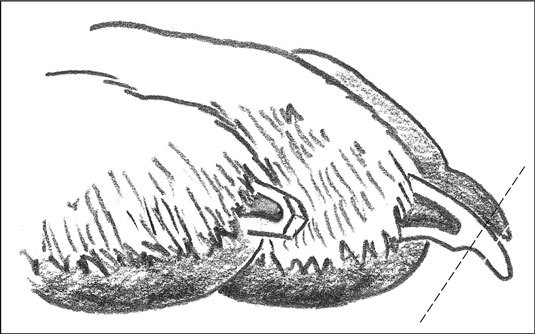 Dogs claws are to long.
QuestionMy dogs claws are very long, they are starting
Dogs claws are to long.
QuestionMy dogs claws are very long, they are starting
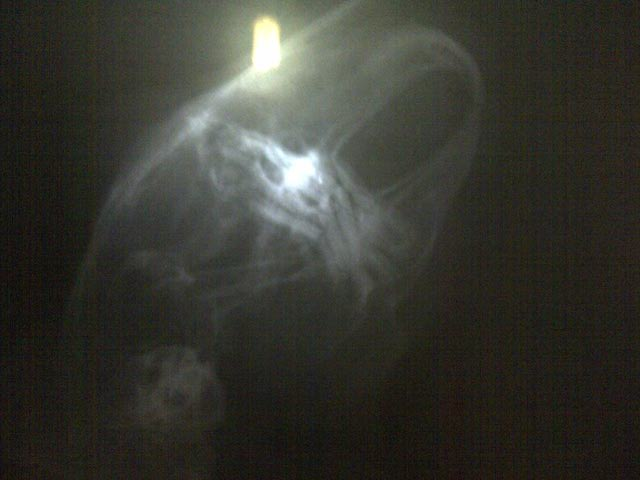 inquiry..my bunny keeps drolling n grinding his teeth
Question
dental xray xray
Dear Jana,
Hai..
inquiry..my bunny keeps drolling n grinding his teeth
Question
dental xray xray
Dear Jana,
Hai..
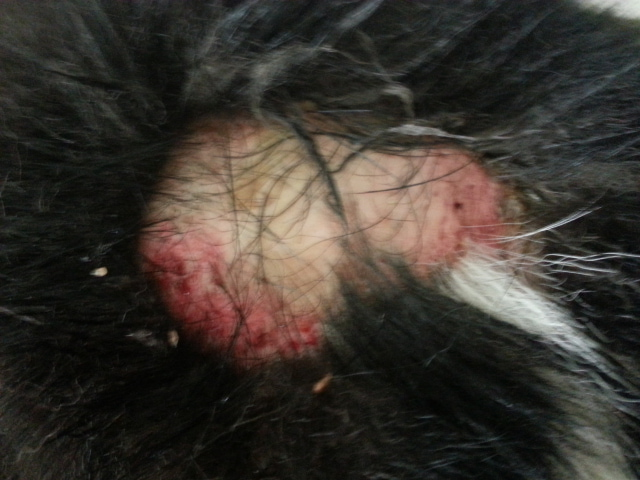 German shepherd skin issue please help
Question
back side back and tail
It start
German shepherd skin issue please help
Question
back side back and tail
It start
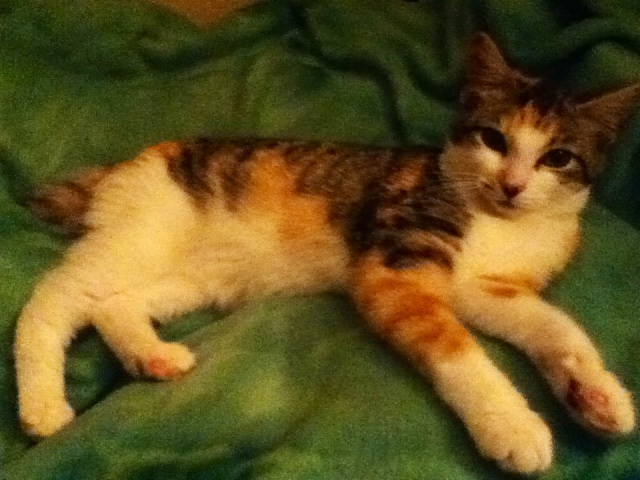 Tailed Manx Kitten docking tail?
QuestionQUESTION: Hello,
I got tailed manx kitt
Tailed Manx Kitten docking tail?
QuestionQUESTION: Hello,
I got tailed manx kitt
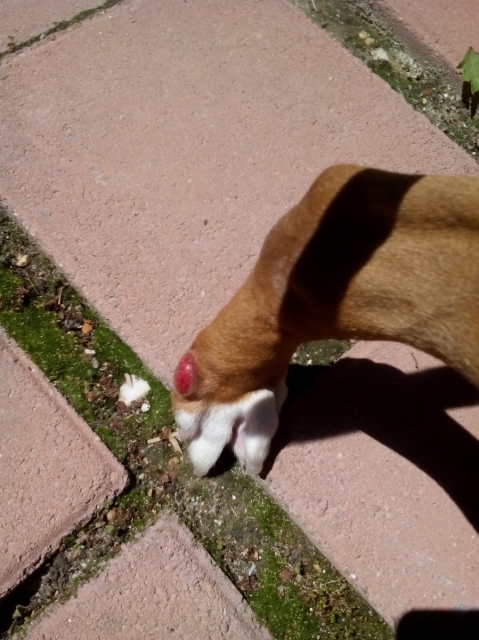 Large boil like bump
Question
back paw
My 2 year old bull mastiff has
Large boil like bump
Question
back paw
My 2 year old bull mastiff has